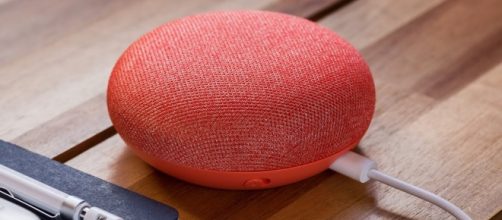The competition for the best smart home speaker system continues to heat up. Currently slugging it out for domination is the three-way match of Amazon, Apple, and Google with their respective devices the Echo, HomePod and Google Home. During a hardware event last week on October 4, Google presented the latest evolutions of their Smart Speaker in two forms, the larger Home Max and the compact Home Mini. The Google Home Mini is due to release first this month on the 19th, but before that day arrives the company will be busy addressing issues found in the device by advance reviewers.
For example, a reviewer’s Mini unit was unwittingly recording sounds in his home for an indeterminate period before discovery.
Unintended recording
Most owners of smart speaker systems have these devices in their home out of trust that the company they patronized would not be spying on them through the speaker’s online connection. But sometimes some mistakes just take place that could result in a company PR nightmare. Android Police reviewer Artem Russakovskii had taken a Google Home Mini, home to test it out before the official release date. To his shock he learned that the gadget, shaped like a flat stone with a speaker mesh on top, was recording every sound in his house and sending the data to Google.
Under normal circumstances, smart speakers like Google’s Home Mini and its competitors would remain idle only until it heard somebody speak out its “wake” command, like “OK Google” or “Hey Google.” Once it does the speaker records your question then stops when it hears no follow-up, then transmits the recording to the cloud where it will be processed, and it can try to answer your question or fulfill your request. The Home Mini, however, has an alternative wake option in that its top portion is touch-sensitive; pressing down on it will activate recording as long as it is being pressed.
Quick Google fix
But Artem Russakovskii’s Home Mini unit apparently “thought” somebody was constantly pressing on its touch-sensitive surface.
Thus it has been recording its surrounding sounds in the reviewer’s home. Russakovskii only realized the error when he saw that the smart speaker's recording indicator lights were lit, though he needed to look at the Home Mini’s search history to discover that its touch sensor was triggered.
Google thankfully was on point when the error was reported and has transmitted a software patch to fix the touch-sensitive area of its Home Minis. For now, the touch activation has been disabled. They also stressed that thus far, the only affected Minis were the advance units shown in the October 4 event and those given to reviewers. The Home Mini devices to be released on October 19 are assured not to have that problem.


